
Back-to-School Adaptation Guide for Different Age Groups: A Montessori Perspective
Back-to-School Adaptation Guide for Different Age Groups: A Montessori Perspective
As the “Back to School” season begins in Europe and the U.S., many families and educators are asking: How can we help children smoothly transition from holiday mode back to school life? The needs of children at different ages vary greatly. Montessori education emphasizes respecting children's sensitive periods of development and supporting them through a prepared environment and the use of appropriate materials. With this in mind, this article explores adaptation strategies for preschoolers, lower elementary, and upper elementary students, while drawing on the expertise of professional Montessori brands such as Adena Montessori, to provide valuable guidance for parents and teachers.
I. Toddler Stage (Ages 1.5–3): Building Independence and Trust
For toddlers, going back to school or entering a childcare setting for the first time is a significant milestone. At this age, children are in the sensitive period for movement and language, and they are beginning to explore independence. The transition can feel overwhelming, so the key is to provide a sense of trust and opportunities for autonomy.
Key Adaptation Tips:
1. Gentle Separation and Consistency
Short, predictable drop-off routines help toddlers feel secure. A familiar goodbye ritual reassures them that parents will return. Consistency in caregivers and routines at school is equally important.
2. Support Independence through Practical Life
Simple activities such as carrying their own snack box, washing hands, or helping put away shoes give toddlers a sense of competence. Adena Montessori’s Toddler Practical Life Materials—like spooning, pouring, and dressing frames—encourage independence while refining motor skills.
3. Encourage Language through Daily Interaction
Reading simple books together, singing songs, and naming objects in the environment support toddlers’ language development. This helps them feel more confident and connected when returning to or starting school.
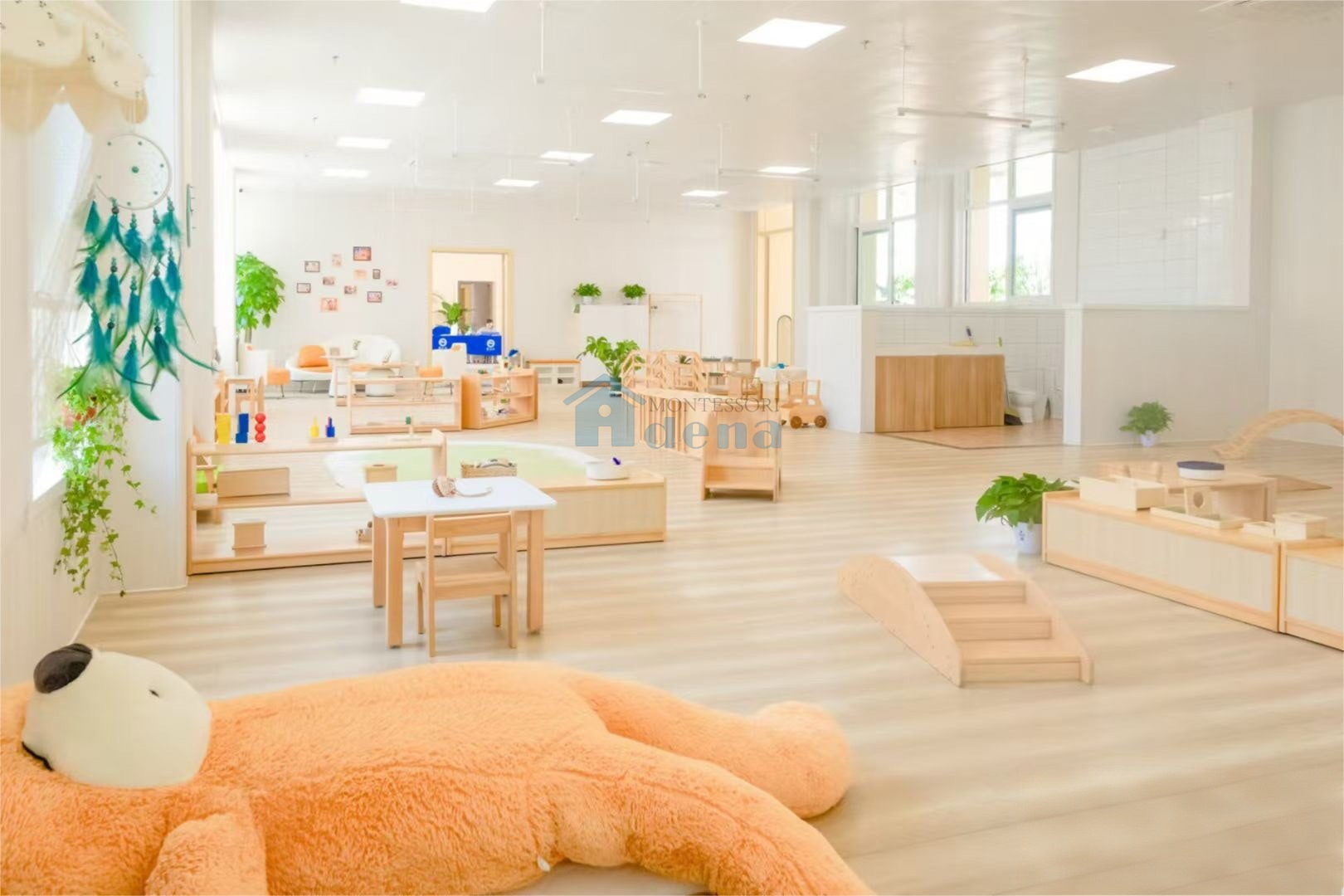
II. Preschool Stage (Ages 3–6): Building Security and Order
For preschoolers, going back to school means readjusting to group life and classroom routines. At this stage, children are in the sensitive period for order—they crave regularity and predictability in their daily lives. Helping them rebuild a sense of security and order is essential for a smooth return.
Key Adaptation Tips:
1. Re-establish Routines
Holiday schedules are often irregular. Parents can gradually adjust waking, mealtimes, and bedtimes one or two weeks before school starts to match the school's daily rhythm.
2. Restore Order
Montessori stresses the importance of a prepared environment. At home, parents can create a small, dedicated space for children to keep their backpack, shoes, and school supplies. This small act of “everything in its place” helps children feel more in control of their school transition.
3. Hands-on Materials to Ease Anxiety
During transitions, Practical Life Materials from Adena Montessori—such as pouring exercises or buttoning frames—can help children calm their emotions through purposeful activity. These materials satisfy the child's need to “learn by doing,” while also fostering independence and concentration, leading to a smoother adjustment to school routines.
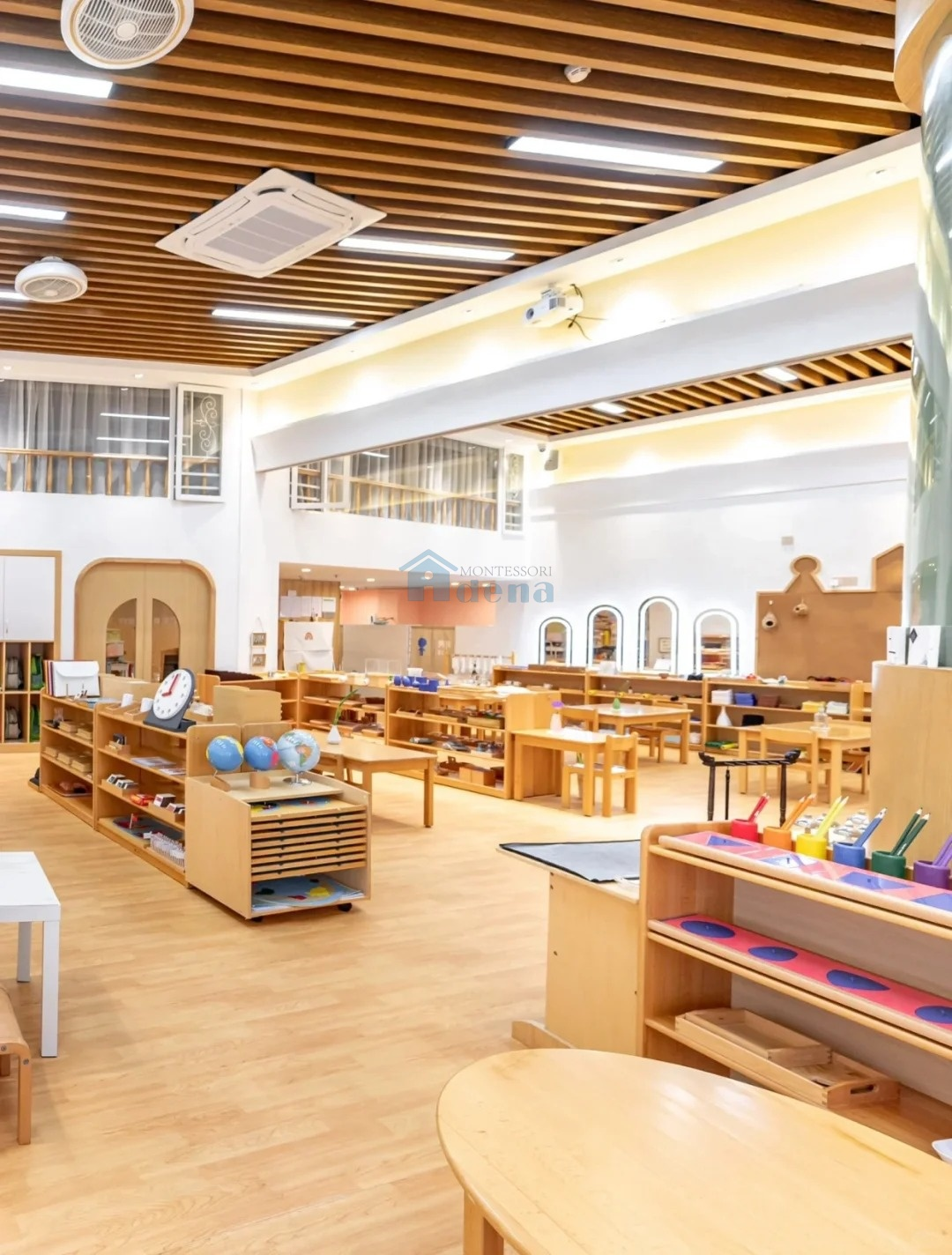
III. Lower Elementary Stage (Ages 6–9): Fostering Responsibility and Social Skills
As children enter the early elementary years, academic tasks increase and social interactions become more complex. Montessori educators describe this as the sensitive period for socialization. Children begin developing a stronger sense of responsibility and self-awareness through collaboration with peers.
Key Adaptation Tips:
1. Involve Children in School Prep
Before school begins, parents can involve children in choosing supplies and organizing their belongings. This shared responsibility nurtures independence—a cornerstone of Montessori practice.
2. Practice Social Scenarios
Since children will encounter new classmates and teachers, role-play at home can help them practice introducing themselves, asking for help, or resolving minor conflicts.
3. Use Montessori Materials to Spark Interest
At this stage, mathematics materials (such as the golden bead material or addition/subtraction boards) and language tools (like movable alphabets or word-building cards) help children grasp abstract concepts through concrete experience. Having access to these tools, whether at school or home, builds confidence and motivates children to engage with classroom learning.
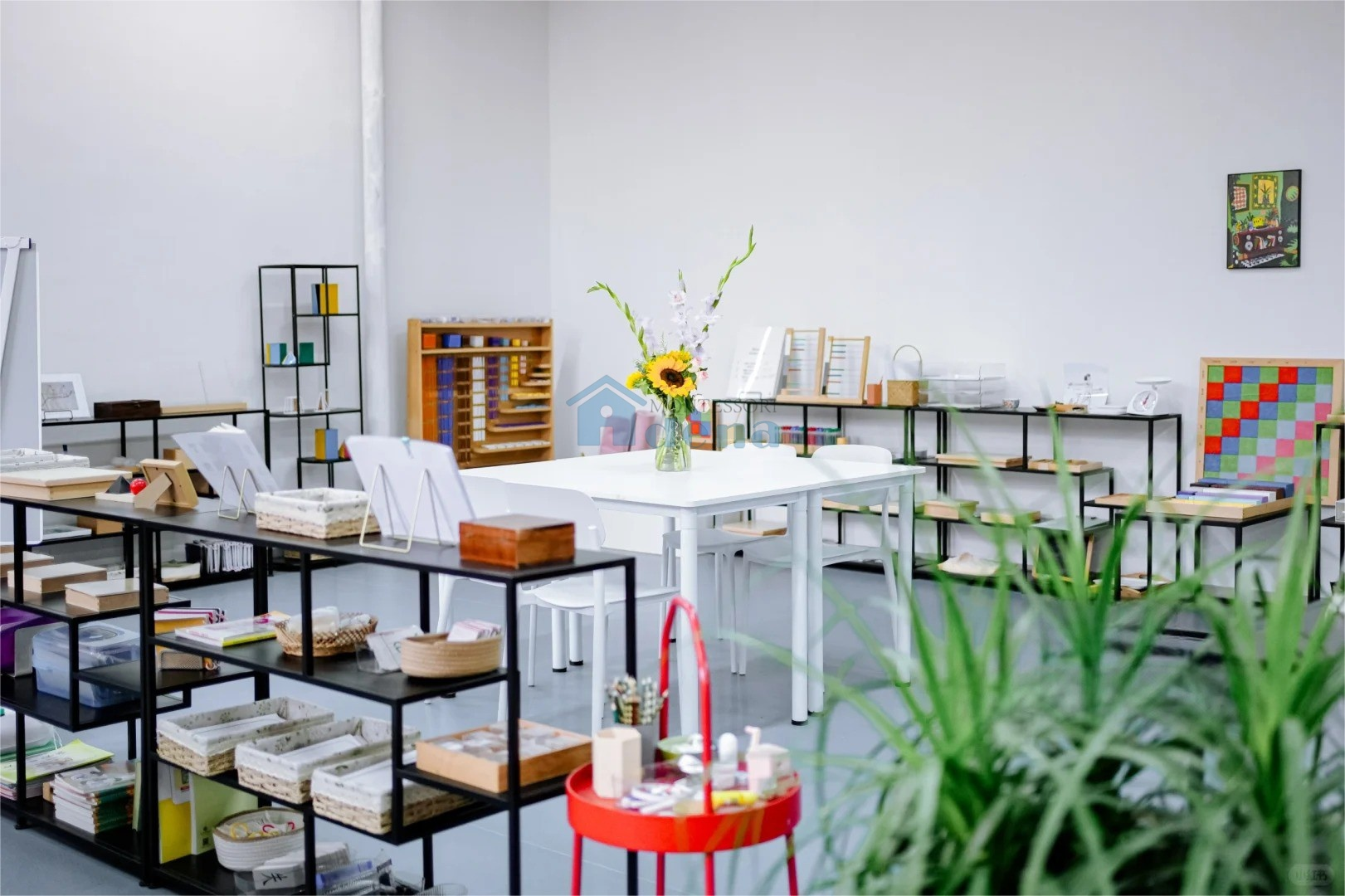
IV. Upper Elementary Stage (Ages 9–12): Cultivating Inner Motivation and Self-Management
For older elementary students, the main challenges of returning to school often lie in academic pressure and the need for greater self-discipline. At this age, children enter the sensitive period for reasoning, showing interest in complex logic, science, and social issues, while also desiring more autonomy.
Key Adaptation Tips:
1. Set Goals and Manage Plans
Parents can guide children in setting realistic goals—such as the number of books to read or a new skill to master. Allowing them to create their own schedules or use simple planning tools strengthens long-term self-regulation.
2. Encourage Exploration and Interdisciplinary Learning
Montessori emphasizes the Great Lessons, which spark curiosity by presenting big stories about the universe, life, and human history. Cosmic Education Materials—such as timelines and geography puzzles offered by Adena Montessori—help children connect knowledge to the real world, giving deeper meaning to their studies.
3. Emotional Balance and Peer Collaboration
Academic stress can trigger anxiety. Teachers and parents can encourage group projects or classroom discussions that give children opportunities to practice emotional regulation, teamwork, and conflict resolution.
V. Shared Roles of Parents and Teachers
At every developmental stage, collaboration between parents and teachers is vital. Montessori philosophy reminds us that adults are guides, not mere transmitters of knowledge.
l Parents' Role: Provide consistent support and observation, while creating an orderly and warm home environment.
l Teachers' Role: Prepare engaging environments with diverse materials that empower children to explore independently.
Professional Montessori brands like Adena Montessori, rooted in this philosophy, continue to design high-quality materials that support both educators and families in guiding children's growth.
Conclusion
“Back to School” is not only the restart of academic learning, but also an important phase of social and emotional adaptation. Children of different ages require different forms of support, and Montessori offers us a clear path: respect developmental needs, prepare the right environment and tools, and let children thrive in independence, confidence, and collaboration.
This school season, every child—from preschoolers to upper elementary students—deserves to be gently supported and seen. With the help of Montessori-inspired resources and the expertise of brands like Adena Montessori, parents and educators can better accompany children into a school year full of hope and possibilities.
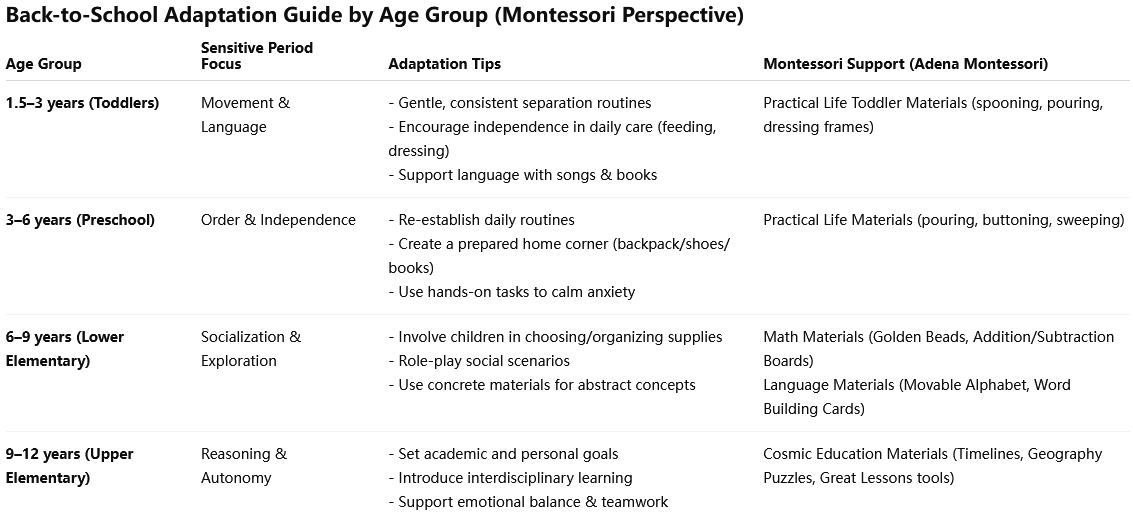
Tip: All photos here are shared by Adena Montessori clients, and the products featured are from Adena Montessori too.
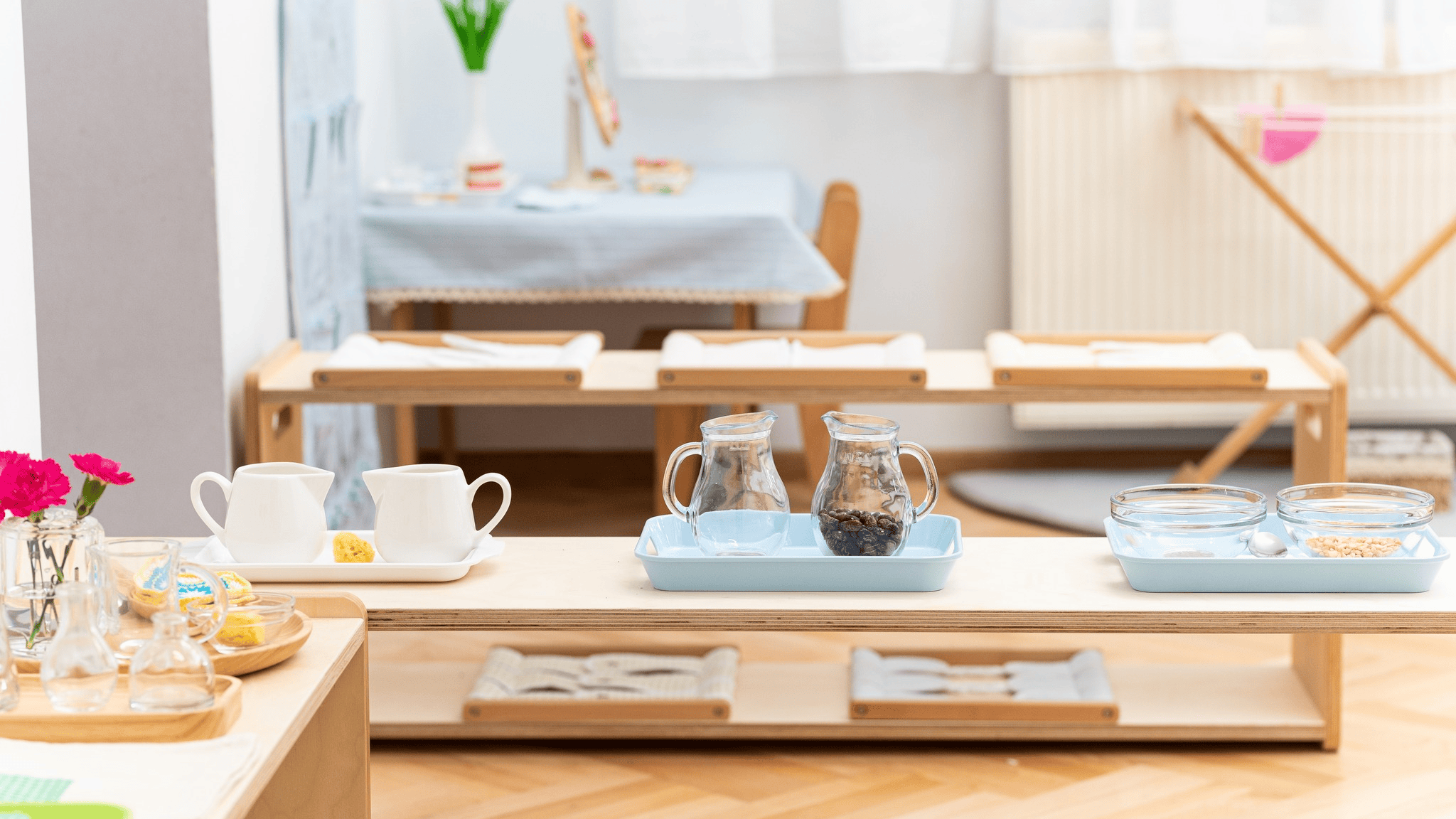 Back-to-School Anxiety: Montessori Tips for a Smooth Transition
Back-to-School Anxiety: Montessori Tips for a Smooth Transition
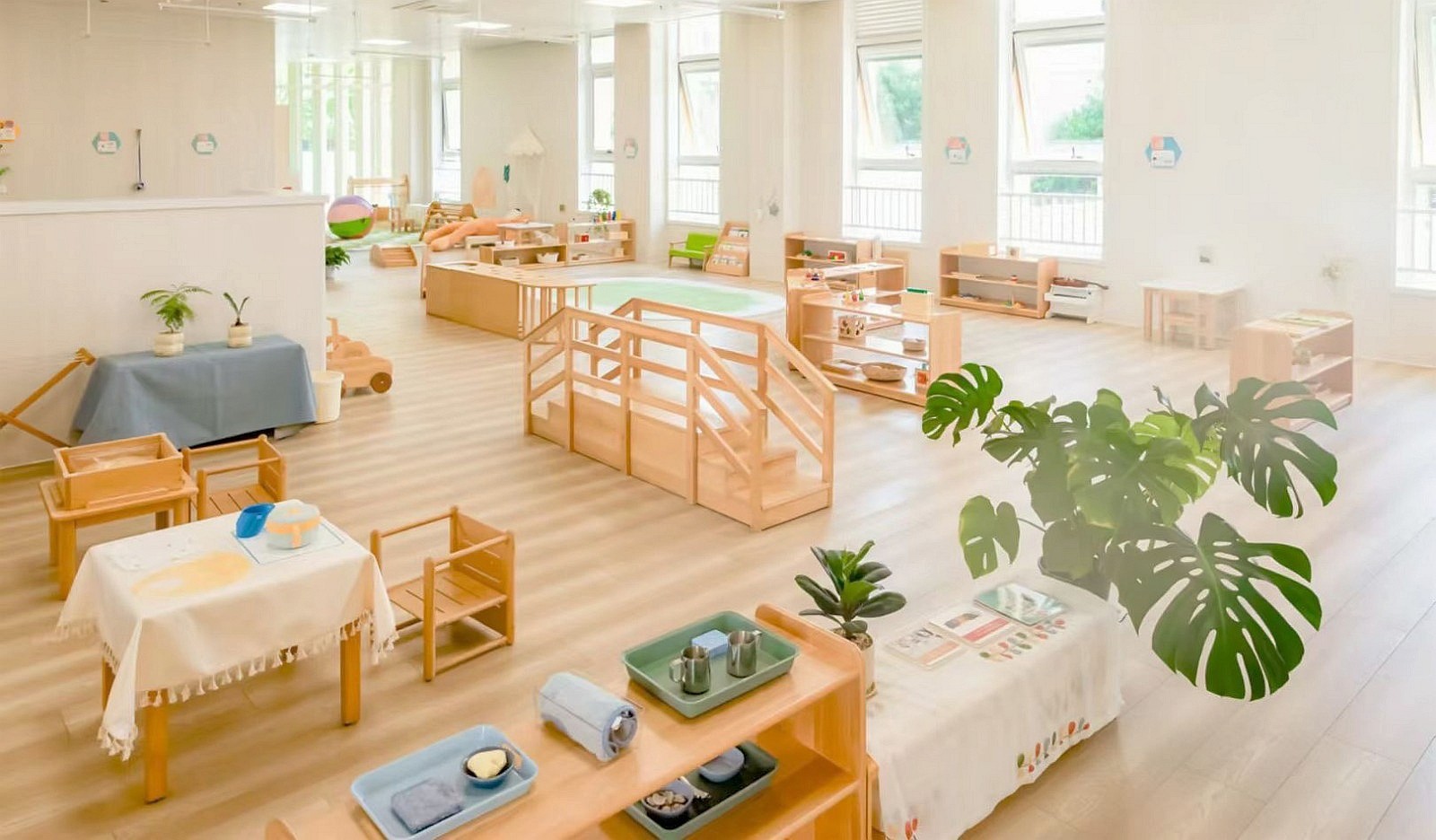 Back-to-School Checklist: Montessori Study Corner Setup | Adena Montessori
Back-to-School Checklist: Montessori Study Corner Setup | Adena Montessori
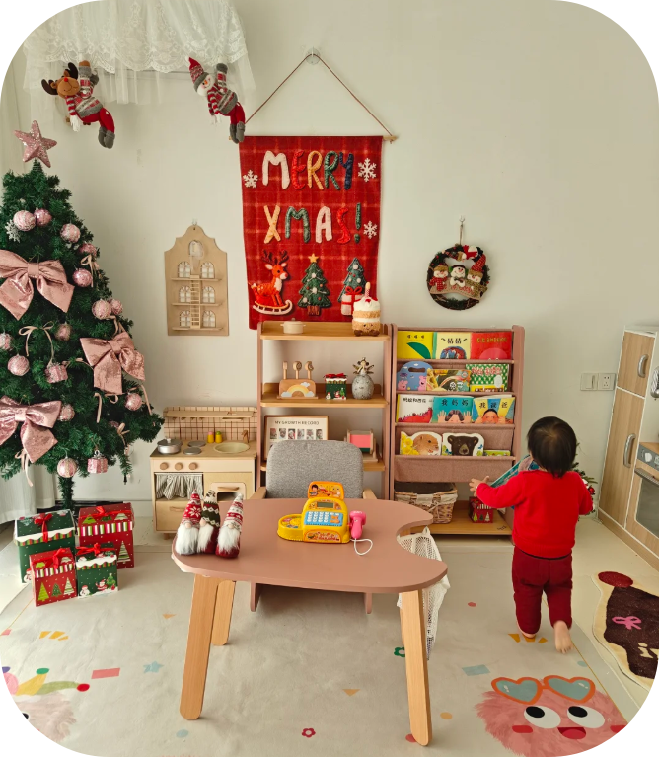 How to Build a Montessori Christmas Shelf at Home: A Simple Guide for Parents
How to Build a Montessori Christmas Shelf at Home: A Simple Guide for Parents
 Adena Montessori Christmas Deals: A Holiday Gift of Growth
Adena Montessori Christmas Deals: A Holiday Gift of Growth
